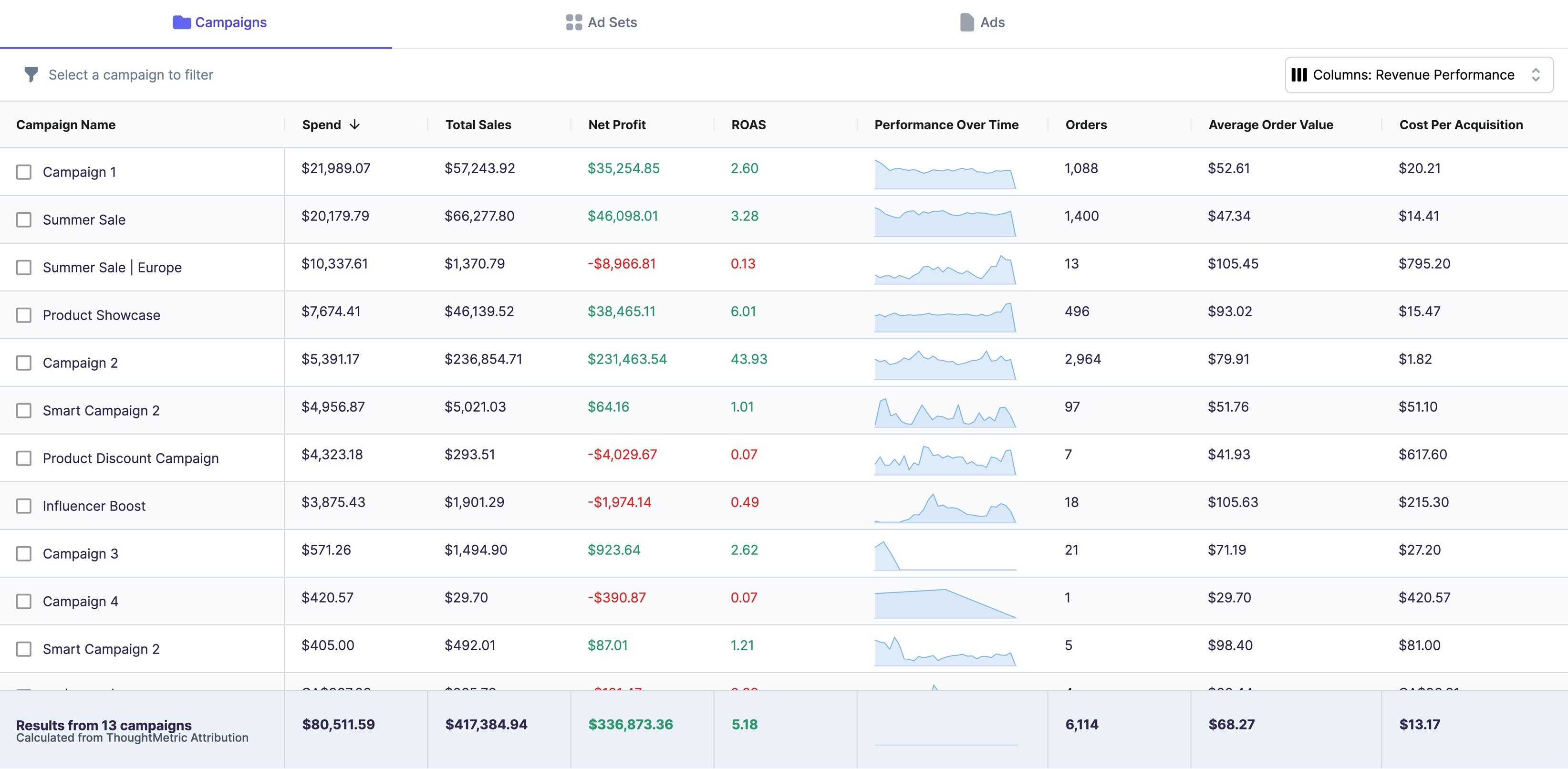As a marketer or business owner, one of your primary goals is to maximize your revenue through your advertising efforts. Google Ads is a powerful tool that can help you achieve just that. However, to succeed in your Google Ads campaigns, it's essential to understand how to calculate your revenue accurately. In this article, we will guide you on how to calculate revenue in Google Ads by utilizing analytics tools, setting up conversion tracking, and optimizing your campaigns for higher returns.
Understanding Google Ads Revenue
Google Ads revenue refers to the total amount of money earned from your advertising campaigns on the Google search and display network. Revenue is a vital metric that measures your campaign's success and profitability. Understanding how to calculate your revenue accurately is crucial in making informed decisions that will drive your campaigns towards success.
When it comes to calculating revenue in Google Ads, it's essential to understand the different factors that contribute to it. For example, revenue can be influenced by the cost of your ads, the number of clicks they receive, and the conversion rate of those clicks. The conversion rate is the percentage of users who take the desired action after clicking on your ad.
One way to increase your revenue is to optimize your campaigns for higher conversion rates. This can be achieved by creating compelling ad copy that resonates with your target audience and using relevant keywords that match their search intent. You can also improve your landing pages' design and user experience to encourage more conversions.
What is Google Ads Revenue?
Google Ads revenue is the amount of money generated by conversions resulting from clicks on your ads. Conversions can include form fills, downloads, sign-ups, or any other desired action by your target audience. When a user clicks on your ad and takes the desired action, Google Ads tracks that conversion, which is then used to calculate your revenue.
It's important to note that revenue isn't the same as profit. Revenue only takes into account the money earned from conversions, while profit considers the cost of running your campaigns. To calculate your profit, you need to subtract your advertising costs from your revenue.
Importance of Calculating Revenue in Google Ads
Calculating revenue in Google Ads is crucial in achieving your campaign goals. It helps you determine your campaign's profitability, measure your return on investment (ROI), and optimize your campaigns for better results. Additionally, tracking your revenue provides insights into which keyword and ad combinations are driving the most revenue, helping you make informed decisions on where to allocate your budget.
For example, if you notice that a particular keyword is driving a high conversion rate and generating significant revenue, you may want to increase your bid for that keyword to improve its visibility and attract more clicks. On the other hand, if a keyword isn't generating much revenue, you may want to pause or lower your bid for that keyword and allocate your budget to more profitable campaigns.
In conclusion, understanding and tracking your Google Ads revenue is essential in optimizing your campaigns for success. By focusing on increasing your conversion rates and monitoring your revenue, you can make informed decisions that will drive your campaigns towards profitability and growth.
Setting Up Conversion Tracking in Google Ads
Setting up conversion tracking is the first step towards calculating your revenue in Google Ads. It allows you to measure the performance of your ads and determine which ones are driving revenue.
Types of Conversions to Track
Before setting up conversion tracking, you need to determine the specific actions you want your target audience to take, such as filling out a form or making a purchase. Once you identify your desired conversions, you can set up conversion tracking for each one to measure their individual performance.
Implementing Conversion Tracking
To set up conversion tracking, you need to place a tracking code on your website's conversion page that fires when a user completes the desired action. Google Ads will then track the conversion and attribute it to the ad that triggered it. You can also use Google Tag Manager to implement conversion tracking without altering your website code.
Calculating Revenue from Google Ads Campaigns
Calculating revenue from your Google Ads campaigns involves analyzing your cost-per-click (CPC), estimating conversion value, and calculating your return on ad spend (ROAS).
Analyzing Cost-Per-Click (CPC)
The CPC is the amount you pay each time a user clicks on your ad. Analyzing your CPC is necessary to determine how much you are spending to achieve each conversion. By optimizing your CPC, you can minimize your expenses while maximizing your revenue.
Estimating Conversion Value
Conversion value is the amount of revenue generated by each conversion. Estimating your conversion value involves calculating the average revenue generated by each conversion and using this value to determine the profitability of your campaigns.
Calculating Return on Ad Spend (ROAS)
ROAS is the ratio of the revenue generated by your ad campaigns to the amount spent on them. ROAS is an essential metric in measuring your campaign's profitability and making informed decisions on how to optimize your campaigns for better results.
Optimizing Google Ads Campaigns for Higher Revenue
Optimizing your Google Ads campaigns is crucial in achieving higher revenue. By adjusting your bids and budgets, refining your targeting and keywords, and improving your ad quality and relevance, you can maximize your revenue while minimizing your expenses.
Adjusting Bids and Budgets
Adjusting your bids and budgets involves finding the optimal balance between ad position and cost. By testing different bid amounts and budget allocations, you can determine the most efficient way to maximize conversions with minimal expenses.
Refining Targeting and Keywords
Refining targeting and keywords involves analyzing which keywords and targeting options are driving the most conversions and revenue. By removing underperforming keywords and targeting options, you can optimize your campaigns for maximum revenue and ROI.
Improving Ad Quality and Relevance
Improving your ad quality and relevance involves creating compelling ad copy and visuals that speak directly to your target audience's needs. By improving your ad's relevance and quality score, you can increase your ad's visibility and drive more revenue.
Utilizing Google Analytics for Revenue Insights
Google Analytics provides crucial insights into your revenue and campaign performance. By linking your Google Ads and Google Analytics accounts and setting up ecommerce tracking, you can gain valuable insights into your revenue metrics.
Linking Google Ads and Google Analytics
To link your Google Ads and Google Analytics accounts, you need to enable auto-tagging in your Google Ads account and link your Analytics property to your Google Ads account.
Analyzing Revenue Metrics in Google Analytics
Once you link your accounts, you can analyze revenue metrics such as revenue per click, average order value, and total revenue by campaign, ad group, keyword, and more. These insights can help you optimize your campaigns for higher revenue and profitability.
Setting Up Ecommerce Tracking in Google Analytics
Ecommerce tracking allows you to track revenue generated by specific products or services on your website. By setting up ecommerce tracking, you can gain valuable insights into which products or services are generating the most revenue and optimize your campaigns accordingly.
Conclusion
Calculating revenue in Google Ads is crucial in maximizing your campaign's profitability and achieving your advertising goals. By utilizing analytics tools, setting up conversion tracking, and optimizing your campaigns for higher returns, you can achieve maximum revenue while minimizing expenses. By consistently analyzing your revenue metrics and adapting your strategies accordingly, you can stay ahead of the competition and drive your business forward.





